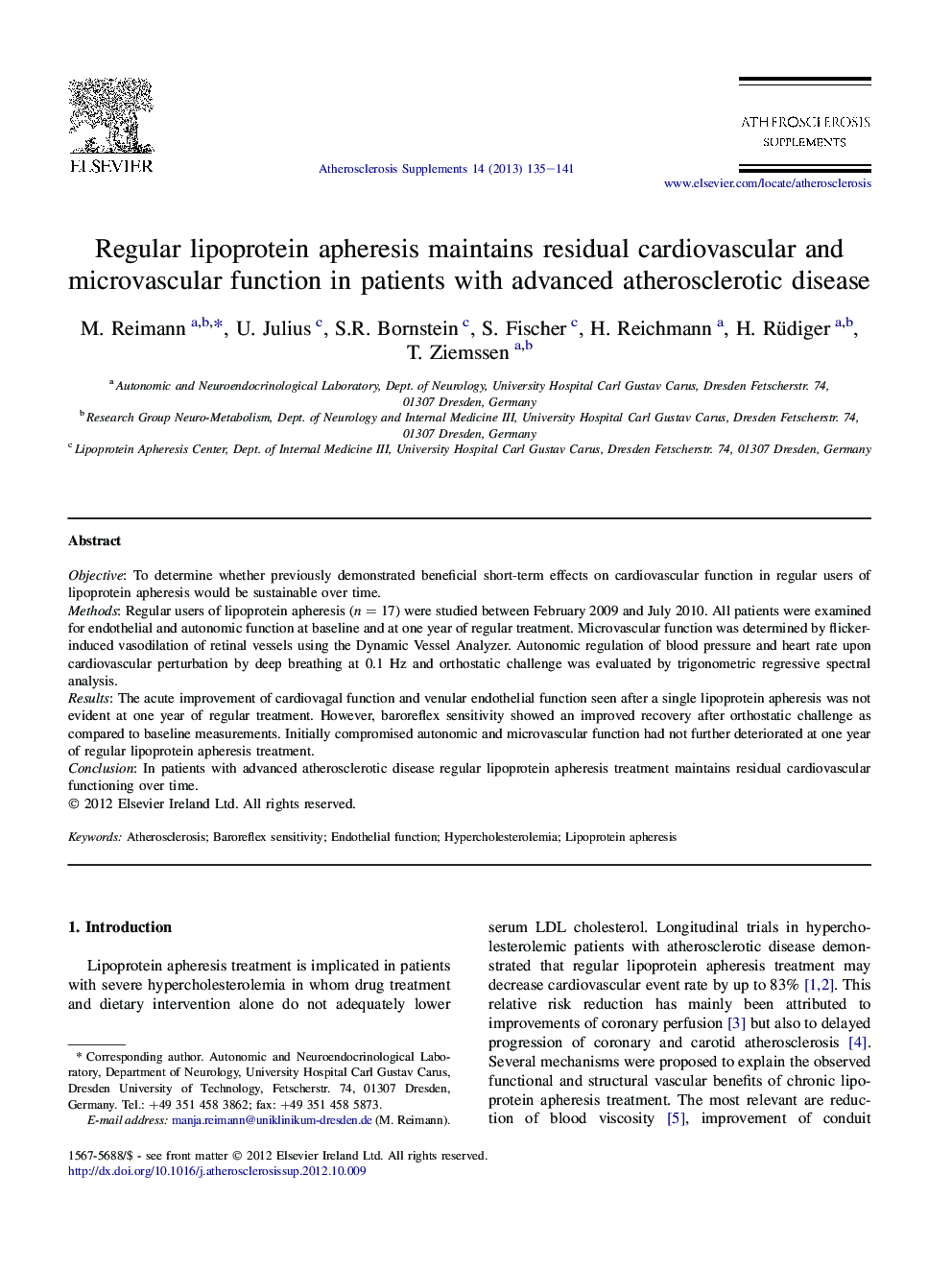| Article ID | Journal | Published Year | Pages | File Type |
|---|---|---|---|---|
| 2895646 | Atherosclerosis Supplements | 2013 | 7 Pages |
ObjectiveTo determine whether previously demonstrated beneficial short-term effects on cardiovascular function in regular users of lipoprotein apheresis would be sustainable over time.MethodsRegular users of lipoprotein apheresis (n = 17) were studied between February 2009 and July 2010. All patients were examined for endothelial and autonomic function at baseline and at one year of regular treatment. Microvascular function was determined by flicker-induced vasodilation of retinal vessels using the Dynamic Vessel Analyzer. Autonomic regulation of blood pressure and heart rate upon cardiovascular perturbation by deep breathing at 0.1 Hz and orthostatic challenge was evaluated by trigonometric regressive spectral analysis.ResultsThe acute improvement of cardiovagal function and venular endothelial function seen after a single lipoprotein apheresis was not evident at one year of regular treatment. However, baroreflex sensitivity showed an improved recovery after orthostatic challenge as compared to baseline measurements. Initially compromised autonomic and microvascular function had not further deteriorated at one year of regular lipoprotein apheresis treatment.ConclusionIn patients with advanced atherosclerotic disease regular lipoprotein apheresis treatment maintains residual cardiovascular functioning over time.
